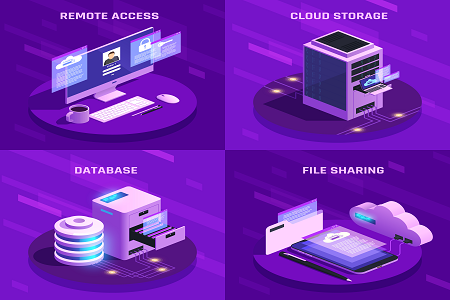Salient IT Services › Data backup solutions Lodi
What you need to know about data backup solutions in Lodi
A robust data backup solution protects you against all kinds of problems, including ones that could cripple your business. With that in mind, here is a quick guide to what you need to know about data backup solutions in Lodi.
All data backup solutions must be legally compliant
Data protection laws apply to data regardless of whether it’s used in production, held in a data backup or stored in a data archive. One of the fundamental principles of modern data protection is that sensitive data should only be kept for as long as it is genuinely needed. If you operate a policy of just backing up all the data you hold “no questions asked” you are almost certainly going to run into legal trouble sooner or later (and also vastly increase your operating costs).
As a minimum, you need a process for identifying active data (i.e. data used in production) versus dormant data. If the data is sensitive you must then either delete it straight away or archive it until the relevant compliance period has passed. Some non-sensitive data may also need to be archived for compliance reasons (for example financial data). From a legal perspective, it’s usually entirely up to you whether or not you then delete it. From a practical one, it usually makes sense to delete it promptly unless there is a specific reason for keeping it. This approach not only reduces costs but can also help to increase the visibility of your remaining data.
Please note that legally (and ethically) you are responsible for your data, not your IT services vendors. This means that you need to select and supervise your IT services vendors carefully and make sure you can enforce any contractual obligations in actual fact, rather than just in theory.
You can usually store sensitive data in the cloud as long as it is encrypted first
If you are still working in a data center, then you may want to stick with physical storage for your on-site backup, but you generally want to use the cloud for your off-site backup as it can vastly reduce your recovery time. If you’re already in the cloud (public or private), then you will want a “local” backup in your main cloud platform plus an “off-site” backup in another cloud.
If you are in the public cloud then backing up your data to another public cloud is usually the simplest and most-effective way to go. If you then add the tools your staff members need to work with the data (for example an operating system and applications), you will have a complete disaster recovery solution.

This may seem like a lot of effort to make, but most of the work will lie in setting up and managing the cloud-to-cloud data backup and a capable data backup solutions provider in Lodi can manage that for you. You will need this regardless to protect against the erroneous deletion of your data (by accident or on purpose). You would simply be taking this one step further to create a disaster recovery solution that would protect you from losing access to your main cloud.
If you are in the private cloud, then you will need to run a second private cloud as a disaster recovery solution. The question then becomes whether or not you should store your data backups directly in your disaster recovery cloud or whether you should just store them in the public cloud. Storing your data backups in your second private cloud makes for simpler architecture and quicker recovery from a disaster, but it can be a lot more expensive than using the public cloud.
It’s important to manage your use of bandwidth
In the old days, one of the concerns about cloud supervise your IT services vendors carefully
was that they would leave you exposed in the event of an internet outage. These days, however, that has long since ceased to be an issue in all but the most remote of locations, for example, Alaska.
It is, however, fair to say that bandwidth-management is becoming increasingly important to sustainable and cost-effective internet usage. This means that companies generally want to limit the frequency of their full data backups and supplement them with incremental data backups and/or differential data backups.
Incremental data backups only back up data which has changed since the last backup. They require minimal resources to perform, but it can be complicated (for which read slow) to restore from them. Differential data backups only back up data which has changed since the last full data backup. They need more resources than incremental data backups, and hence are slower and more expensive to perform, but it can be much easier, for which read much quicker, to restore from them.
If you’d like to speak to a reputable and experienced data backup solutions provider in Lodi, please click here now to contact Salient IT.


 (3 votes, average: 3.67 out of 5)
(3 votes, average: 3.67 out of 5)
